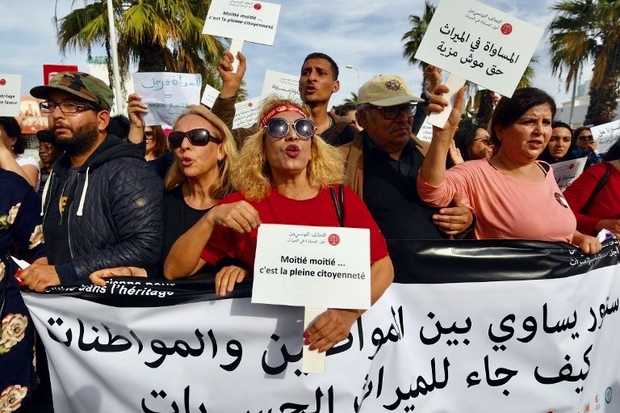
Tunisian women march for equal inheritance rights
Tunisian women led a march by more than 1,000 demonstrators on 10 March to demand equal inheritance rights as men. Tunisia’s inheritance law is based on Islamic jurisprudence stipulating that men inherit double the amount received by women.
The demonstrators marched to the seat of parliament in the Tunisian capital chanting equal inheritance rights “are a right, not a favour”. Last year, President Beji Caid Essebsi announced plans to set up a committee to draft proposals to advance women’s rights. His announcement sparked opposition from Muslim clerics who issued a statement saying the proposals amounted to “a flagrant violation” of Islamic precepts.
Article 21 of the constitution states: “All citizens, male and female, have equal rights and duties, and are equal before the law without any discrimination.” Monia Ben Jemia, who heads the Tunisian Association of Democratic Women, said she hoped the inheritance law based on Islamic law will change by next year. “The fact that we are talking about it now means that we have already won the battle,” she said.
Rahma Jawadi, who heads a rural women’s organisation in North Western Tunisia, said any change in the law on inheritance would help empower women in her region. The commission examining individual liberties is expected to release its first report in June and will likely recommend a policy of step-by-step changes, one of its members said. It may suggest that families take it upon themselves to equally distribute the inheritance between sons and daughters, thus bypassing Islamic precepts.
Tunisia is regarded as a leader for women’s rights in the region, with gains in 2017 that lifted a ban on Muslim women marrying non-Muslim men, and an end to a law that let rapists escape punishment by marrying their victims.
- The Euromed news are edited by the team of the Euro-Mediterranean Policies Department of the European Institute of the Mediterranean -


